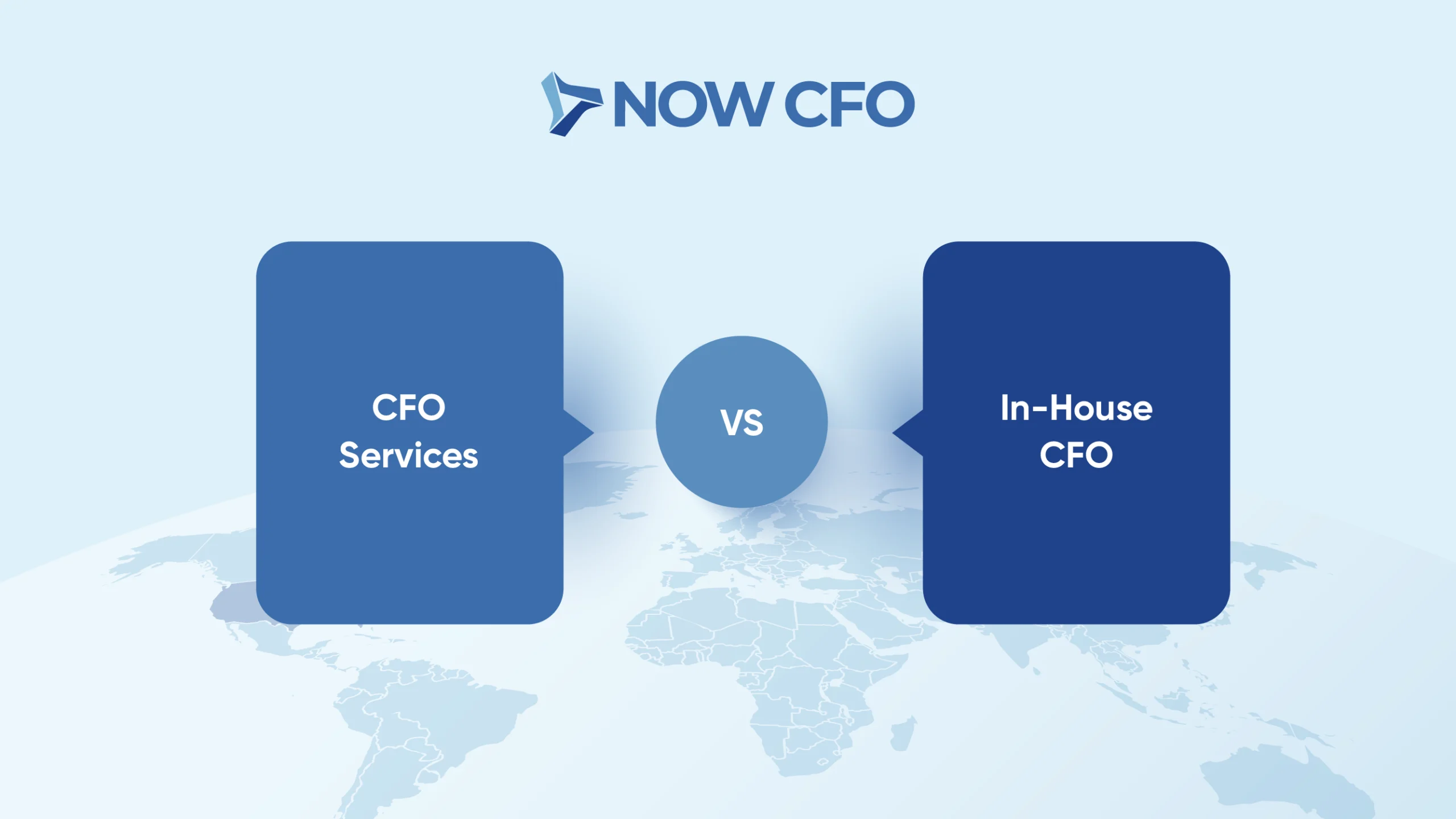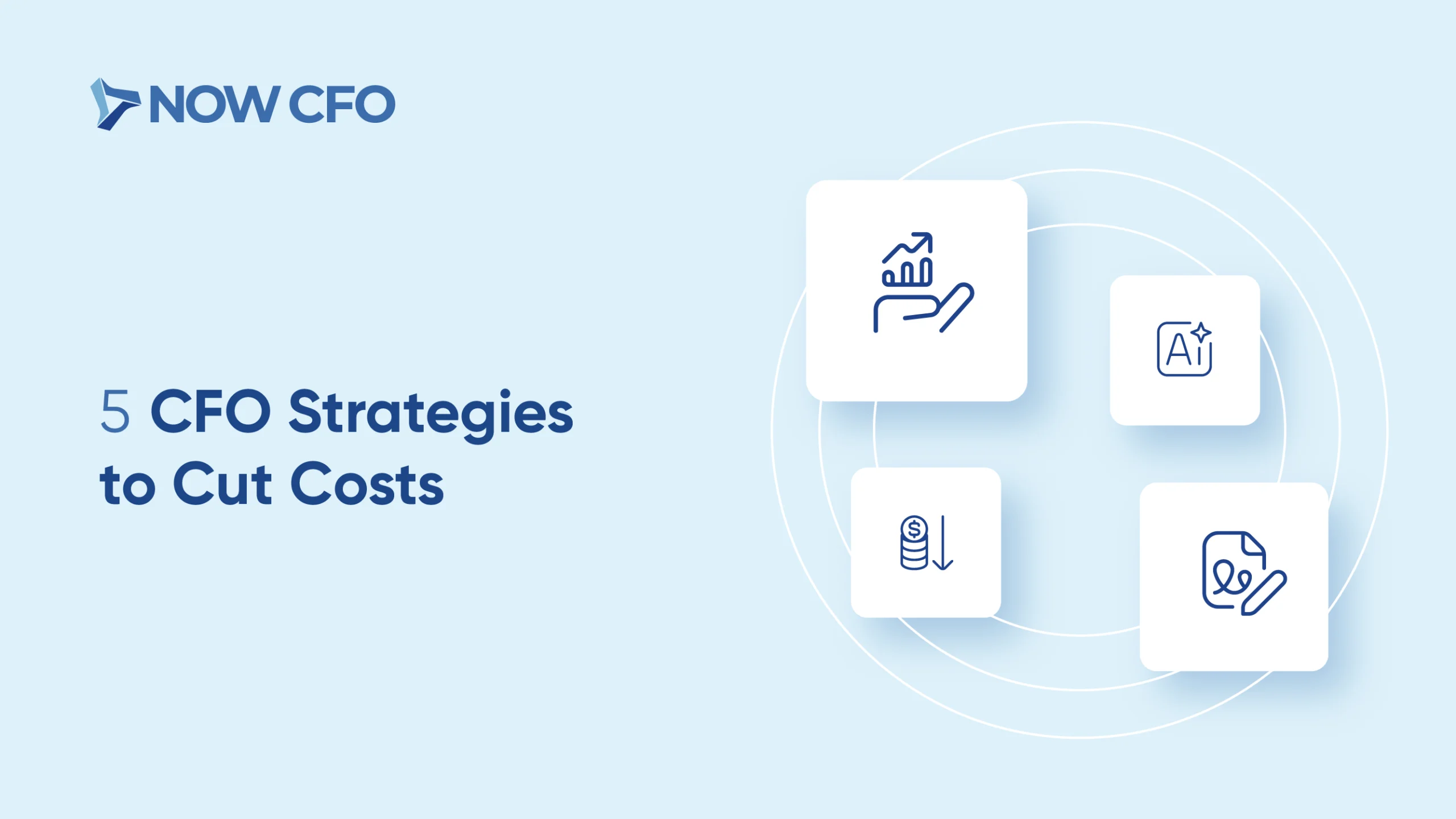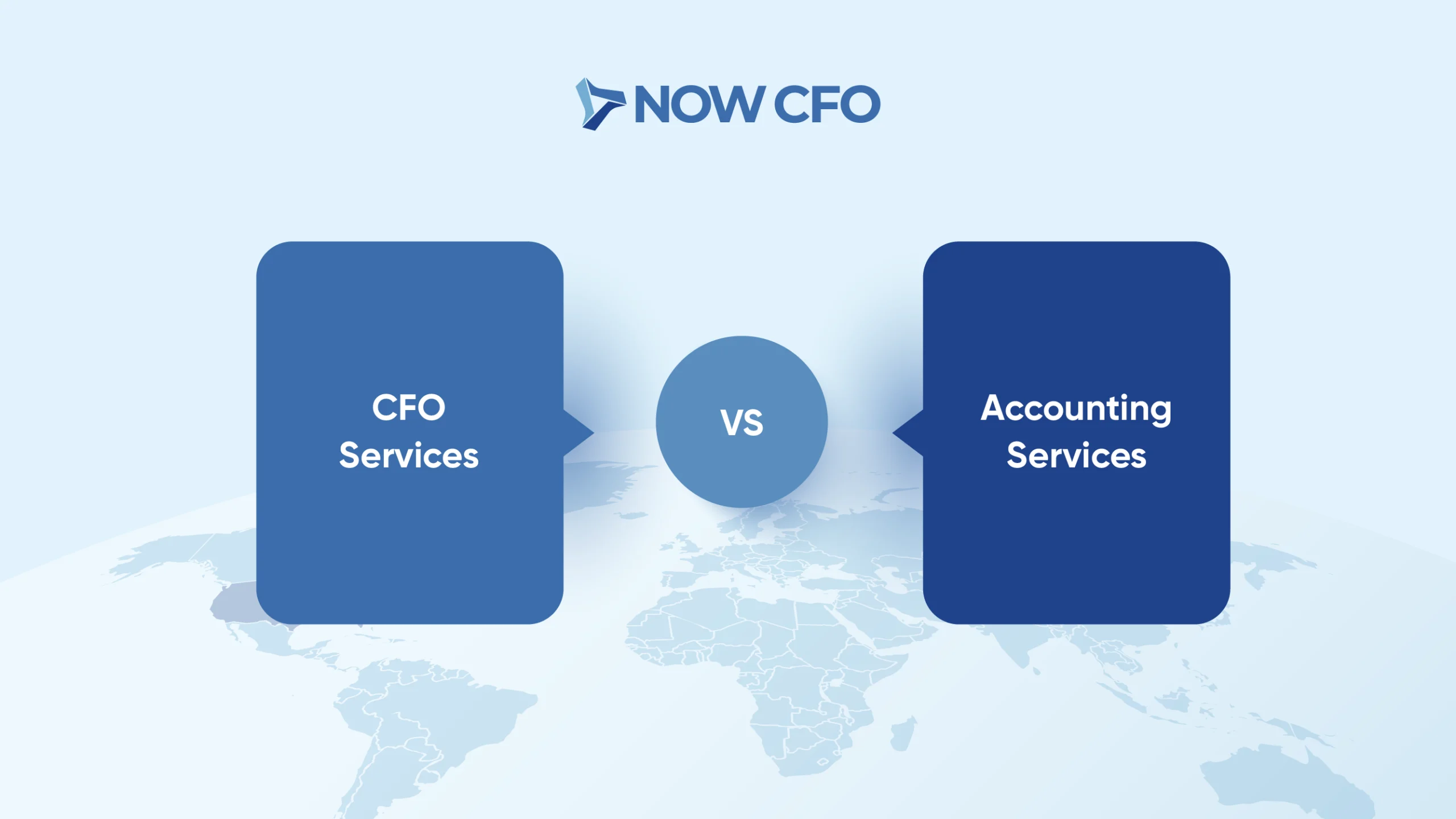
Small and mid-sized businesses face daily operational demands while needing long-term financial vision. Knowing the difference between CFO services and accounting services is essential.
A solid base in accounting services for SMEs includes bookkeeping, payroll, and compliance, ensuring clarity. Adding CFO services brings strategic forecasting, capital planning, and sharper decision-making.
Understanding Accounting Services
A clear grasp of accounting services helps business owners maintain financial accuracy and make informed operational decisions.
The Core Functions of Accounting
Accounting involves a structured system of recording and managing financial transactions that form the backbone of business integrity.
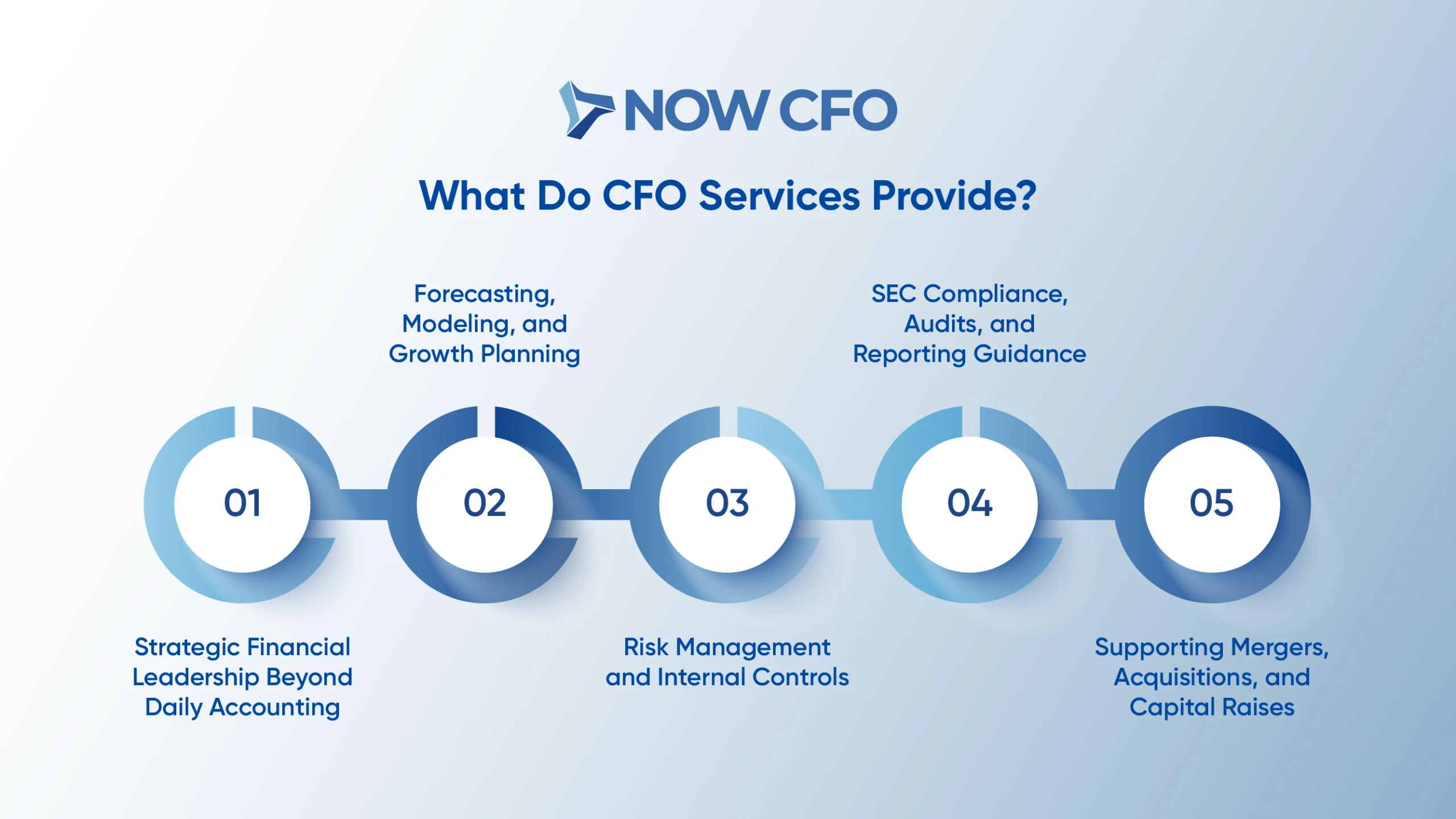
Bookkeeping, Payroll, and Transaction Management
Bookkeeping, payroll, and transaction management are the three pillars of business finance. They ensure real-time financial tracking, employee compensation compliance, and transaction visibility.
Financial Statement Preparation and Compliance
Accountants are responsible for preparing accurate financial statements, like balance sheets, income statements, and cash flow statements.
- Professionals assemble statements that are compliant with GAAP and regulatory requirements.
- Financial statements are prepared through internal and external audits.
- Accountants apply internal controls over data integrity, from verifying ledgers to conducting variance analysis.
- Compliant reports help leaders accurately assess performance, plan budgets, and model finances.
- Investors and lenders use financial statements to assess credibility, growth potential, and funding decisions.
Tax Preparation and Reporting
Accurate tax preparation and reporting are essential parts of accounting services for small businesses.
Accounting teams handle several key responsibilities with precision:
- Prepare and file federal, state, and local tax returns promptly and accurately.
- Identify eligible deductions and credits to optimize tax liability legally.
- Respond to IRS notices and maintain communication to resolve issues efficiently.
- Organize receipts, invoices, and logs to substantiate tax filings during audits.
- Monitor and adhere to all tax due dates to avoid fines and interest.
Importance of accurate record-keeping in business operations
Record-keeping enables businesses to monitor growth, quantify performance, and ensure legal compliance. Good records help track deductions, monitor growth, and support accurate tax filings.
Additionally, organized records increase access to funding, as lenders prioritize transparency. Accurate records enable CFOs to implement effective strategic financial management.
What Do CFO Services Provide?
CFO services provide strategic oversight to guide business growth and financial health. They go beyond routine accounting by focusing on forecasting, risk management, and long-term planning.
What Do CFO Services Provide?
- Strategic Financial Leadership Beyond Daily Accounting
- Forecasting, Modeling, and Growth Planning
- Risk Management and Internal Controls
- SEC Compliance, Audits, and Reporting Guidance
- Supporting Mergers, Acquisitions, and Capital Raises
Strategic Financial Leadership Beyond Daily Accounting
A fractional CFO delivers strategic financial leadership beyond daily accounting.
CFOs lead in several pivotal areas:
- Creating financial forecasts and models that anticipate future performance and support decision-making.
- Leading capital planning, like capital expenditure, budgeting, and funding strategies that align with growth targets.
- Enhancing internal controls and risk management, reducing vulnerabilities, and building trust.
- Guiding external stakeholder communication, including lenders, investors, or board-level reporting.
- Supporting major financial events like M&A and capital raises.
Forecasting, Modeling, and Growth Planning
CFOs elevate business performance by delivering accurate forecasting, modeling, and growth planning.
Detailed responsibilities include:
- Create short and long-term projections to anticipate revenue, expenses, and cash flow.
- Construct dynamic modeling tools for scenario planning and investment analysis.
- Set goals and resource plans supporting scalable expansion and funding needs.
- Evaluate best-case and worst-case scenarios to manage uncertainty proactively.
- Ensure that financial projections reflect the business’s vision and operational capacity.
Risk Management and Internal Controls
Small businesses face heightened vulnerability. 29 % of reported fraud cases involve small businesses, most of which are linked to weak internal controls..
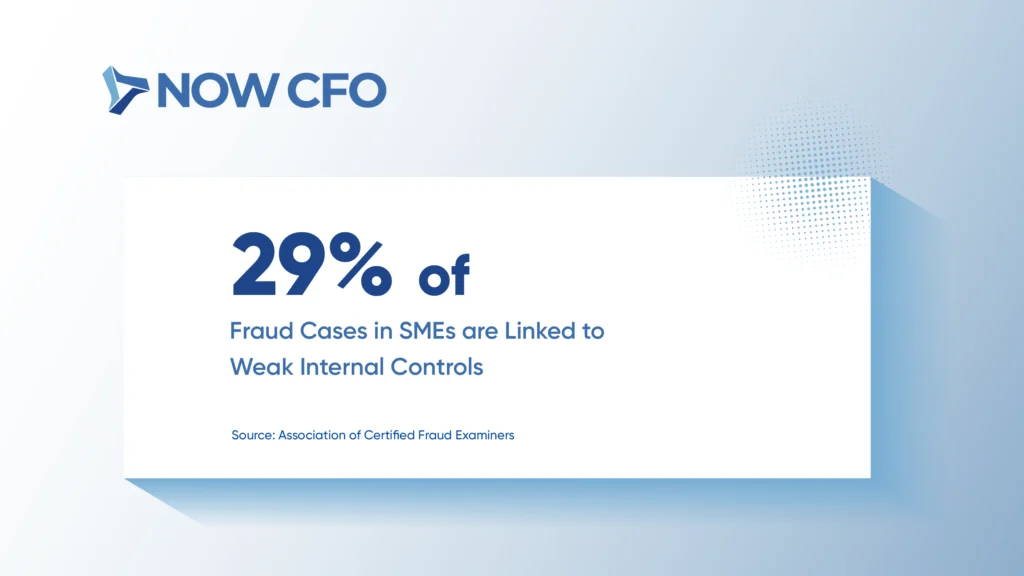
Accountants and owners implement key control measures through structured actions:
- Segregating duties to reduce fraud risk and enhance oversight.
- Monitoring transactions continuously to identify discrepancies promptly.
- Establishing approval protocols that enforce dual sign-offs on payments and expenses.
- Implementing audit trails to track changes and maintain documentation integrity.
- Conducting periodic risk assessments to adapt controls as operations evolve.
SEC Compliance, Audits, and Reporting Guidance
CFOs ensure SEC compliance, audits, and reporting guidance to business owners.
CFOs typically lead the following responsibilities:
- Complying with SEC requirements such as Form 10-K, 10-Q, and Regulation S-K disclosures.
- Coordinating external audits to validate financial statements, internal controls, and compliance.
- Implementing Sarbanes‑Oxley Protocols, including internal control reporting.
Supporting Mergers, Acquisitions, and Capital Raises
Accounting service providers for SMEs handle data integrity and reporting. CFO services enable capital strategy and transactional execution.
Here are key roles CFOs fulfill:
- Design an optimal mix of debt, equity, or hybrid funding to support recapitalization or acquisition.
- Prepare financial models, forecasts, and due diligence materials.
- Lead term sheet discussions, pricing, and covenants to optimize capital terms.
- Align acquired entities operationally and financially.
Learn More: What are CFO Services?
CFO Services vs. Accounting Services: Key Differences
To grasp how the difference between CFO and accounting services plays out in practice, it’s essential to compare how their roles diverge.
Tactical vs. Strategic Financial Roles
The table below highlights how tactical execution by accountants differs from the strategic leadership provided by CFOs.
| Tactical Financial Roles | Strategic Financial Roles |
| Managing ledgers, payroll, and invoices | Guides budgeting and anticipates performance gaps |
| Immediate accuracy and efficiency in financial data | Translate numbers into strategic narratives for investors and board members |
| Prepares regulatory filings, tax documents, and financial statements | Analyze trends, support capital raising, and steer M&A initiatives |
| Enforces transaction validation and reconciliation | Design and monitor internal controls, ensuring scalable integrity |
Operational Record-Keeping vs. Decision-Making Insight
A clear distinction emerges between the daily accuracy of operational record‑keeping and the forward-thinking role of decision‑making insight. One delivers compliance and clarity; the other fuels growth and strategic financial management.
| Operational Record-Keeping | Decision-Making Insight |
| Precisely record bookkeeping entries, ledgers, invoices, payroll, and reconciliations | Interpret operational data, forecast future scenarios, and shape long-term budgeting decisions |
| Ensures timely tax filings, regulatory reports, and balance sheet accuracy | Deliver insights on capital allocation, risk management, and mergers or fundraising |
| Provides daily visibility into cash flow, expenses, and liabilities | Transform numbers into strategic stories for investors, boards, and partners |
Compliance-Driven vs. Growth-Focused Approach
Compliance-driven orientation focuses on regulations and filing requirements, while a growth-focused approach prioritizes strategic expansion, forecasting, and capital optimization.
| Compliance-Driven | Growth-Focused |
| Ensures timely tax filings, licensing, and audit readiness, minimizing legal risks | Develop long-range forecasts, budget models, and growth plans |
| Produces required reports like financial statements and tax filings | Interpret KPIs, control metrics, and leverage insights to drive profitability |
| Focuses on error minimization, internal controls, and compliance accuracy | Evaluate ROI, fundraising, mergers, and resource allocation |
Internal vs. External Stakeholder Communication
Understanding the difference between CFO and accounting services means seeing how communication strategies vary between internal and external parties.
| Internal Stakeholder Communication | External Stakeholder Communication |
| Accounting relays daily figures, cash flow updates, and payroll details to internal teams | CFOs convey financial performance, forecasts, and strategic plans to investors, regulators, and partners |
| Supports internal departments (HR, operations, sales) with budgets and compliance details | Deliver timely, credible insights to external stakeholders to build confidence and support decision-making |
Short-Term Reporting vs. Long-Term Financial Strategy
It’s essential to compare how short-term reporting ensures operational control, while long-term strategy drives vision, investment, and sustained growth.
| Short-Term Reporting | Long-Term Financial Strategy |
| Monthly and quarterly financial reports | Multi-year forecasting and growth planning |
| Cash Flow tracking and budget variance analysis | Strategic capital allocation & scenario modeling |
| Regulatory and compliance reporting on a timely basis | Performance metrics and KPI alignment with long-term objectives |
Do Businesses Need Both CFO and Accounting Services?
Balancing daily financial operations with strategic oversight often requires accounting and CFO expertise as businesses grow.
When Startups May Only Need Accounting
Startups often begin by handling finances internally or with an external accountant. Most startups start with basic financial needs, like bookkeeping, payroll, and tax compliance. Without complex operations, they benefit from accounting services rather than a CFO.
81.7% of U.S. small businesses are nonemployer firms, which limits the need for financial strategy or executive-level support. With straightforward finances, startups can manage well without forecasting, capital planning, or investor communication.
When do Scaling Companies Require CFO Services?
As companies grow, the need shifts from basic accounting to strategic oversight. Here are key moments when scaling businesses require CFO services:
- Pursuing growth or expansion.
- Raising capital or seeking investors.
- Managing complex cash flow and budgets.
- Facing increased regulatory demands.
- Needing a financial strategy, not just reporting.
How CFO and Accounting Roles Complement Each Other
In effective financial management, the CFO and accounting operate hand-in-hand. Accounting ensures accurate day-to-day tracking, while CFOs analyze that data.
Accounting maintains clean, compliant records, such as ledgers, reconciliations, operational reporting, and tax submissions. It also ensures that businesses meet regulatory requirements and maintain visibility.
CFO services leverage these records as a foundation to forecast, manage cash flow, and evaluate expansion opportunities. Then, CFOs present strategic insights to stakeholders, embodying strategic financial management.
Industries Where Both Services are Essential
Specific industries face complex financial demands requiring tactical accounting and strategic guidance. These sectors often need both CFO and accounting services:
- Healthcare and professional services, like law and consulting.
- Manufacturing and logistics.
- High‑growth or capital‑intensive companies.
- Nonprofits and organizations with multiple stakeholders.
Building a Balanced Financial Team with Outsourced Solutions
Below are key reasons why assembling a balanced financial team with outsourced solutions is invaluable:
- Outsourced financial professionals access strategic financial management as needed, saving overhead costs.
- Ensures depth and ongoing support, even as internal staff change or business needs shift.
- Outsourced providers make sure accounting services for SMEs remain accurate and compliant.
How NOW CFO Delivers Integrated Financial Expertise
NOW CFO elevates financial leadership by combining precision-level accounting with strategic expertise.
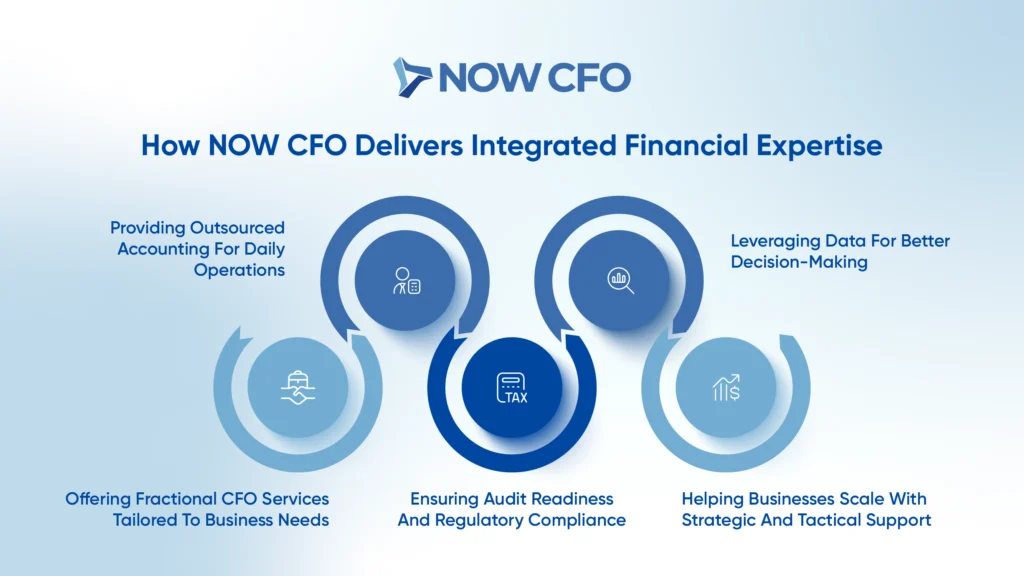
Offering Fractional CFO Services Tailored to Business Needs
Every business has distinct financial challenges, and a one-size-fits-all approach rarely delivers lasting results. Our fractional CFO services are structured to provide the right level of expertise at the right time.
1. Customized Engagement Model
NOW CFO aligns fractional CFO services with a company’s growth trajectory, providing strategic intervention when needed. A flexible structure underscores the difference between CFO and accounting services by delivering high-level expertise without full-time staffing.
2. Purposeful Budgeting and Forecasting
Our clients receive actionable insights through tailored budgeting, rolling forecasts, and cash flow guidance. These insights empower leaders to plan confidently and capitalize on opportunities with strategic financial management.
3. Enhanced Financial Controls and Reporting
We implement strong internal controls and improve financial reporting processes to ensure transparency, accuracy, and compliance. These enhancements transform routine financial data into clear, strategic insights that support better decision-making.
4. Crisis Navigation and Scenario Planning
Revenue fluctuations and market shifts demand agile financial leadership. NOW CFO’s fractional model offers on-call expertise to navigate these scenarios, ensuring resilient planning and adaptive decision-making.
5. Scalability with Cost-Conscious Oversight
Businesses pay only for the required expertise, avoiding fixed costs while gaining adaptive financial leadership. This cost-efficient approach aligns financial strategy with business growth without compromising on expertise.
Providing Outsourced Accounting for Daily Operations
Managing daily finances requires reliability and accuracy. Precision in routine financial operations is the foundation of an effective financial strategy.
NOW CFO delivers this through robust outsourced accounting:
- Accurate bookkeeping and transaction recording.
- Timely payroll, tax, and compliance management.
- Robust reconciliation and cash flow oversight.
- Strong internal controls.
Ensuring Audit Readiness and Regulatory Compliance
NOW CFO helps businesses implement internal controls, align financial operations with regulations, and monitor compliance. Our team prepares companies for audits via assessments, organized documentation, and audits.
Audit preparedness will prevent major disruptions, especially for SMEs. NOW CFO’s methodology eases this burden by integrating compliance within routine financial workflows. This not only supports audit readiness but also enhances long-term scalability.
Leveraging Data for Better Decision-Making
We leverage financial data to drive smarter, faster decision-making across all business levels. With actionable insights, we support strategic planning, forecasting, and performance tracking tied to key business objectives.
Our data-driven approach enables business owners to act confidently. Also, 44% of leaders rely on data analytics for most decisions, showing the growing importance of data in business.
Helping Businesses Scale with Strategic and Tactical Support
Here’s how NOW CFO helps companies grow by aligning accounting services for small businesses with leadership-level financial strategy:
- Fractional CFOs project future cash availability, helping businesses plan for hiring, product launches, or market entry.
- Ongoing financial analysis ensures spending aligns with company growth targets.
- Strategic advisors support equity planning, debt structuring, and investor relations.
- Routine financial tasks like invoicing, reconciliation, and payroll stay accurate and timely.
Conclusion: Choosing the Right Level of Financial Support
Accurate accounting builds a solid financial foundation, while CFO services provide the strategic guidance for growth. Together, they ensure both stability and direction.
NOW CFO offers complimentary consultations to help you determine the right level of support and take confident steps toward your business’s future. So, feel free to reach out and connect with our experts.




